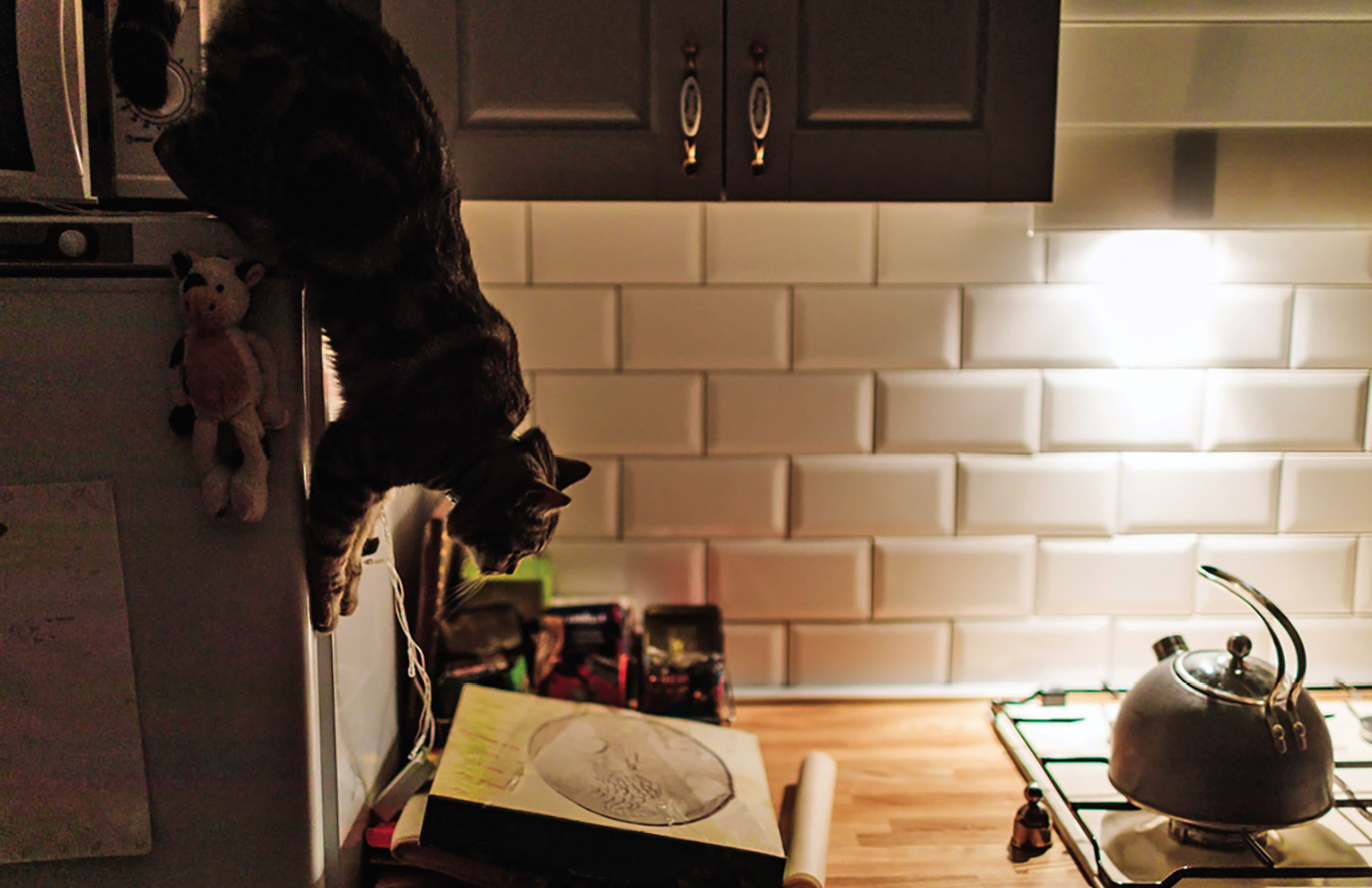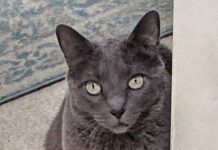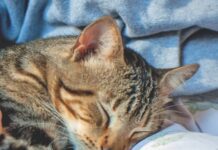During the day, your cat lazily strolls from one napping spot to the next. But as soon as the sun goes down, he turns into a rowdy meowing, pouncing, running maniac!
Most of the time, this is normal. “Cats are crepuscular—most active at dawn and dusk,” says Pamela J. Perry, DVM, PhD, behavior resident at Cornell University’s College of Veterinary Medicine. “This also means that they tend to sleep most of the day, so they are more energetic in the wee hours.”
Twilight Hunters
Cats take advantage of the limited light during dusk and dawn to hunt their prey. It is difficult for prey to spot them creeping up, but the cats can see just fine.
Most of our domestic cats no longer need to hunt for their living, but those instincts run deep. As the sun goes down and then starts to rise again, your cat feels that ancestral call to action and starts making up his own games. Some cats dart through the house at high speed, making a shocking amount of noise for such a small and graceful creature. Others initiate dramatic games of batting and pouncing with “prey” such as bottle caps, pens, or twist ties.
Some cats pair their activity with delighted meows and chirps as they play. Your cat may even enlist you to join in the fun, which is cute if you’re staying up watching a movie, not so much at 3 a.m.
Fun on Your Schedule
You can enjoy playtime with your cat and get your sleep too. “Engaging your cat in play and other activities in the evening will give him an outlet for his instinctual behavior and tire him out before bedtime,” says Dr. Perry.
Entice your cat with feather toys or rolling balls to get him moving and playing. Try to keep him engaged until he starts to tire. Experiment with different cat toys and games to see what he likes best and mix it up to keep him interested.
Training games can be a fun way to interact with your cat and use up some of his energy. Many cats love learning tricks and become avid clicker training fans. For added fun, when giving your cat a food reward, toss it so he can chase and pounce on the treat.
Enforce that when playtime is over, playtime is over. “Many cats learn that when they wake their owners during the night, they get attention and/or food, which makes them more likely to wake their owners again,” says Dr. Perry. “Thus, it is important to avoid giving in to the cat’s demands.” This, of course, is easier said than done.
Wearing your cat out before bedtime is the first step, but is not always 100% effective. Try to ignore your cat when he bothers you at night, or shut him out of the bedroom. Setting up a kitty condo or a large dog crate with everything your cat needs overnight is a great option to confine a cat who gets destructive when ignored. He will be safe and secure in his condo, and your furniture and face will be safe from poking paws.
Hungry, Hungry Kittens
Some cats make a racket in the wee hours of the morning as a bid for early breakfast. In addition to meowing, your cat might also jump on you as you sleep or even lick, nip, or scratch at you to force you to get out of bed.
“If the cat is waking the owner for food, the owner can use an automatic feeder with a timer to dispense food at the forbidden hour,” says Dr. Perry. Using an automatic feeder helps in two ways: First, your cat gets a snack at the time he wants it. Second, it redirects your cat’s attention to the automatic feeder instead of needing your help.
A variety of automatic feeders are available on the market, so shop around to choose the one that best fits your needs. Larger feeders won’t need to be refilled as often, but there is a risk that food can spoil depending on the design. Very few feeders keep canned food moist. If you have a particularly devious cat, make sure that he can’t open or knock over the feeder to get extra snacks.
Also remember to factor any midnight snacks into your cat’s daily caloric intake. Depending on your desired feeding schedule, you might choose to feed his breakfast early via the automatic feeder, or to split his breakfast into two meals, one served via robot in the middle of the night, the other served when you get up in the morning.
Health Concerns
While nighttime activity and vocalization is usually a normal feline behavior, changes in your cat’s sleeping schedule or activity patterns may indicate a health problem. “Some cats become more vocal at night as they age, which can be due to medical issues or sensory or cognitive decline,” says Dr. Perry. If your aging cat is suddenly pacing through the house at night crying, or if he has deviated from his usual routines, schedule an appointment with your veterinarian to discuss the behavioral changes and check for any underlying health problems such as hyperthyroidism.




